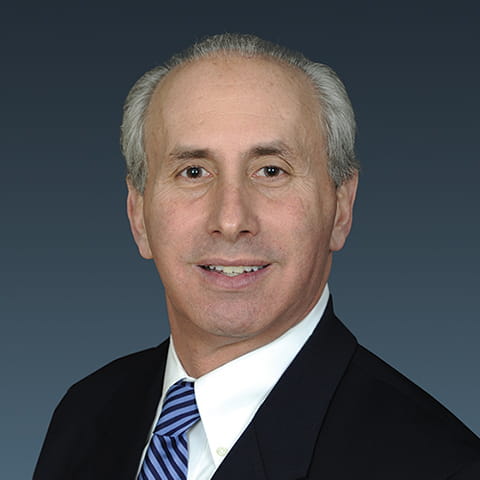Our solutions are tailored to each client’s strategic business drivers, technologies, corporate structure, and culture.
Connecticut bill extends NOL carryforward period, other tax changes
The recently signed bill also includes changes to tax withholding on retirement account distributions and property tax updates. Learn more.
Connecticut Gov. Ted Lamont recently signed into law H.B. 5524 (Bill), impacting state and municipal tax provisions, among other topics. Most changes take effect for tax years beginning on or after Jan. 1, 2025.
Key tax provisions
Of note, the Bill will:
- Allow, rather than require, income tax withholding for certain retirement income distributions for tax years beginning on or after Jan. 1, 2025.
- Extend the corporate net operating loss (NOL) carryforward period from 20 years to 30 years for NOLs incurred in tax years beginning on or after Jan. 1, 2025.
Tax withholding on retirement income distributions
Under current law, any person that:
- Makes a payment of nonpayroll amounts (pensions, annuities, profit-sharing plans, stock bonuses, deferred compensation plans, individual retirement arrangements, endowments, or life insurance contracts); and
- Has an office in Connecticut, or does business in the state while making such payments;
must withhold Connecticut personal income tax when making such payments to Connecticut residents.
Effective for tax years beginning on or after Jan. 1, 2025, withholding on these distributions is only required if requested by the payee, or if it is a lump sum distribution (a distribution greater than $5,000 or of more than 50% of the payee’s entire account balance, whichever is less, excluding any other tax withholding and any administrative charges and fees). In the case of a lump sum distribution, if a payee does not request tax withholding on such, the payer must withhold Connecticut personal income tax at the highest marginal rate under the new law.
Under existing law expiring Dec. 31, 2024, payers only withhold at the highest marginal rate when distributing a payee’s entire retirement account balance.
Extension of corporate NOL carryforward period
For tax years beginning on or after Jan. 1, 2025, the Bill extends the carryforward periods into which a corporation may carry forward NOLs for corporation business tax purposes from 20 years to 30 years. NOLs generated in prior taxable years are not impacted by this change.
Other tax provisions
In addition to the items discussed above, the Bill provides that the Connecticut Department of Revenue Services (DRS) can reaudit insurance premium returns and impose more than one deficiency assessment. It also extends the due date for newly licensed nonresident- and foreign-licensed insurance companies to remit their initial five-year return to DRS. According to the Office of Legislative Research Bill Analysis, “By law, these companies must pay state insurance premiums tax on the net direct premiums they received in the five preceding calendar years from policies written on property or risks located in the state (except ocean marine insurance).” The foregoing went into effect on passage of the Bill.
Regarding property tax, the bill increases the cap on the local property tax exemption for certain farm-related assets, which assets do not include motor vehicles, but do include horses used exclusively in farming. Further, under the Bill localities are allowed to provide a partial property tax exemption for most owner-occupied primary residences and in seven named municipalities taxpayers can claim certain property tax exemptions filed after the deadline for filing such claims for the exemptions. These updates went in effect on passage of the Bill.
In addition to the tax changes, the Bill establishes a working group to examine certain existing tax expenditures in Connecticut for the purpose of simplifying the tax code and to identify expenditures that are redundant, obsolete, duplicative, or inconsistent in language or policy. Not later than Jan. 1, 2025, the working group is to submit a report to the named committee of the General Assembly, which report is to include the working group's findings and any recommendations for revisions to the general statutes to further the goal of simplifying the state tax code.
What does CohnReznick think?
Connecticut employers with in-state employees or retirees should coordinate with affected parties, including internal payroll tax functions, external benefit managers, and benefit recipients to confirm that withholding elections are documented, and appropriate amounts withheld.
Additionally, Connecticut corporate taxpayers should note the extended NOL carryforward period for corporation business tax purposes.
Further, those businesses and individuals affected by the other provisions of the Bill should be aware of the changes and how they are affected.
Contact
Let’s start a conversation about your company’s strategic goals and vision for the future.
Please fill all required fields*
Please verify your information and check to see if all require fields have been filled in.
Related services
Any advice contained in this communication, including attachments and enclosures, is not intended as a thorough, in-depth analysis of specific issues. Nor is it sufficient to avoid tax-related penalties. This has been prepared for information purposes and general guidance only and does not constitute legal or professional advice. You should not act upon the information contained in this publication without obtaining specific professional advice specific to, among other things, your individual facts, circumstances and jurisdiction. No representation or warranty (express or implied) is made as to the accuracy or completeness of the information contained in this publication, and CohnReznick, its partners, employees and agents accept no liability, and disclaim all responsibility, for the consequences of you or anyone else acting, or refraining to act, in reliance on the information contained in this publication or for any decision based on it.













.jpeg?h=400&w=1380&hash=B10AE9D16587EBFAAC03CAB08A1ED3BE)



